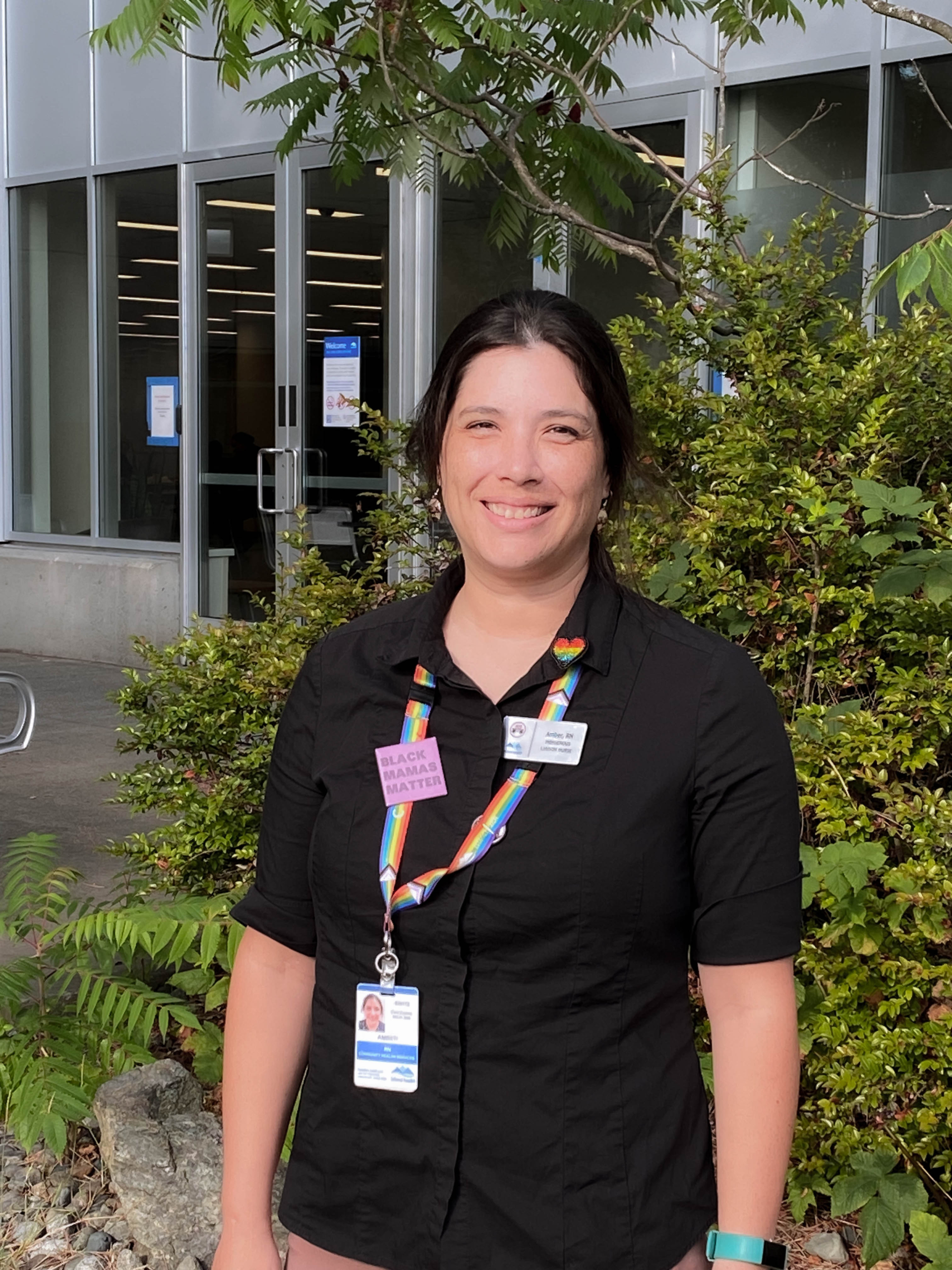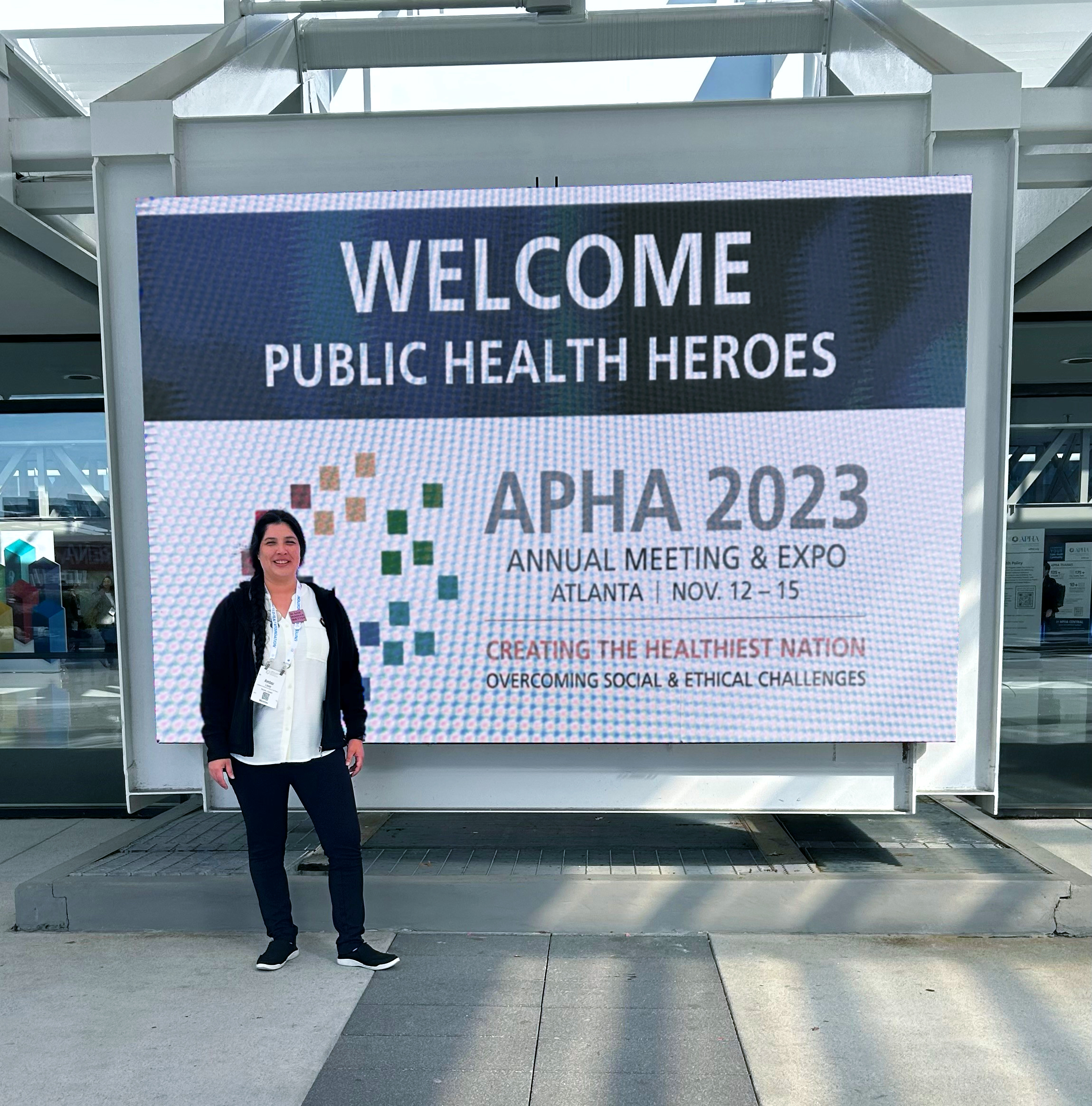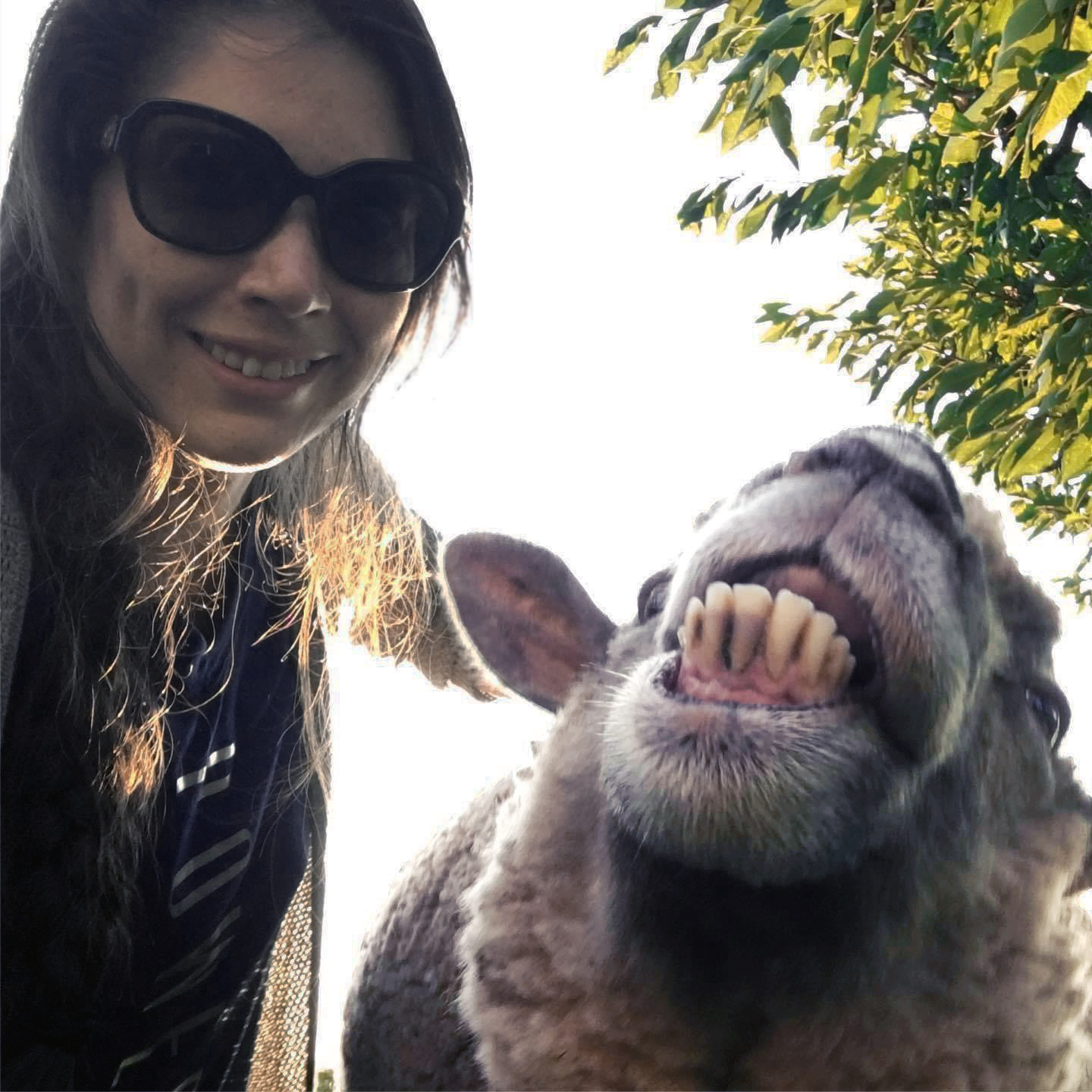
Amber Louie
Indigenous Liaison Nurse, Ktunaxa Nation Member, Daughter, Aunt, Farmer, Human
Listening. Translating. Advocating. Ginger-ale-serving. Providing support can look a lot of different ways in my role as an Indigenous Liaison Nurse at Royal Jubilee and Victoria General hospitals. When I introduce myself to my patients as Amber Louie, I quickly follow up to say that I am not an Island Louie (as there are many). I’m actually a Ktunaxa Louie; my nation is in the southeast corner of BC near Creston. I share this to show my patients, firstly, that we share a cultural identity, and secondly, that I understand how the indigenous family systems work.
I’m no stranger to large families. My own is quite unique. All together, I have seven full and half-siblings. My mother comes from the Bountiful community, created by my grandpa, JR Blackmore; my father is a member of the Ktunaxa nation—two very different tribes. I still visit both when I go back to Creston.
This summer, I took my niece and nephew from Winnipeg. It was important to me that they be connected with their communities. I had them answer, “Who are you the grandchildren of?”, to remind them of their claim to that land. Connection to land and culture is such an important determinant of health, and in my role, I work with so many who struggle to feel this connection—who feel lost.
Helping to foster a sense of cultural connection is a large part of my role. Because of my roots, I am typically able to build a relationship with Indigenous patients faster than my non-Indigenous counterparts. My own father was admitted to an Indian Hospital as a child, so I know the impact these kinds of experiences can have. My patients realize very quickly that I understand where they are coming from, and will believe what they’re going to say. As our rapport and trust evolve, so does the way I support the patient. Where initially I may just be grabbing them ginger-ale or an extra pillow, eventually they feel comfortable to share different concerns they have, incidents they have faced, or events from their history.
“Connection to land and culture is such an important determinant of health, and in my role, I work with so many who struggle to feel this connection—who feel lost.”
“Reconciliation is not just between Island Health and Tsartlip, or Pauquachin, or Esquimalt. It is the process of restoring each individual relationship of all the many people in these groups.”
Understanding of First Nations systems is vital to my role; but equally important is an understanding of the settler medical system. I’ve been Indigenous my whole life; but I’ve also been a nurse since 2015, in both community health and acute care. This experience gives me the ability to communicate well, not only with my Indigenous patients, but also my fellow caregivers as we work towards reconciliation. I get to be a relational bridge. Doctors will often call me and ask “Hey, what’s your insider input? How can I approach this differently?” It’s amazing. I love to see that sort of thing because, ultimately, my goal is to work myself out of a job. When everyone is culturally safe and understands how to work well with First Nations populations, I won’t need to be here.
Indigenous liaison nursing is a field that I’ve been aware of for a number of years; but I never quite felt ready to step into it until recently, after completing my Master’s in Public Health with a focus on Indigenous Peoples. I initially pursued this program with the hopes of joining my nation’s leadership as a Health & Social Director. This didn’t pan out; but the program did provide other fantastic opportunities. I was able to do a practicum with the Deputy Provincial Health Officer of Indigenous Health, Dr. Danièle Behn Smith. My time there, and my degree, have given me a seat at bigger tables. The letters after my name are a tool to be used as I continue to pursue reconciliation.
It’s slow, but I do feel there’s been a shift—like people are seeing things a little bit differently as we change perspective with truth. You can’t do reconciliation without truth. There’s been a lot more truth coming out, and people are willing to hear those truths. I always encourage everyone to read all the reports: In Plain Sight, the Missing & Murdered Indigenous Women & Girls Report, the Calls to Action. When you read them, remember that for me—for Indigenous people across our country—every one of those statistics is a family member, a friend, a community member. It’s our lives.
That is why I take the work I do so seriously. Every single relationship matters. Reconciliation is not just between Island Health and Tsartlip, or Pauquachin, or Esquimalt. It is the process of restoring each individual relationship of all the many people in these groups. It’s seeing a nation member leaving the hospital feeling safe, and willing to come back. It’s recognizing and stepping outside of our biases to see the truth.
I have my own biases to work through. There are many things I’ve had to unlearn, and relationships I’ve had to reopen as I try to keep my niece and nephew connected to their culture, land, and family. Funnily enough, one bias I had was against agriculture. Creston is a farming town, and I grew up around orchards and horses. As a young adult I tried to run away from that life; but now, if I won the lottery, I’d buy a farm.
I actually do live on a farm currently with my cousin and our grandparents. It’s a horse co-op, but we’ve also got sheep and goats, cats and dogs, ducks (which are a little bit wild), and chickens. I love my chickens. We have about 100, and I know them all by name. My mother has even knit sweaters for some of them. I laugh at myself that this is what my life has turned into; but I’ll spend my evenings sitting and watching my chickens.
At the end of the day, everything comes back to relationships. With my chickens, my family, my co-workers, my patients. Relationality is really what Indigenous people are about. It is a core part of being who you are, being human. We live within the land, the water, the animals, the cosmos, our ancestors, and all those around us. If we can heal these relationships, we can heal.
“I have my own biases to work through. There are many things I’ve had to unlearn, and relationships I’ve had to reopen”
They are humans first, who put other humans first.
More than 8,900 caregivers and staff work around the clock in our Victoria Hospitals
#HumansFirst is dedicated to sharing the stories from behind our hospitals’ frontlines. These stories remind us that those who provide care and keep the lights on in our hospitals also have lives outside of them. They have family and friends, they enjoy hobbies and interests, and they have all lived through their own personal triumphs and heartbreaks. Like all of us, they are human, and they have a story to tell.







